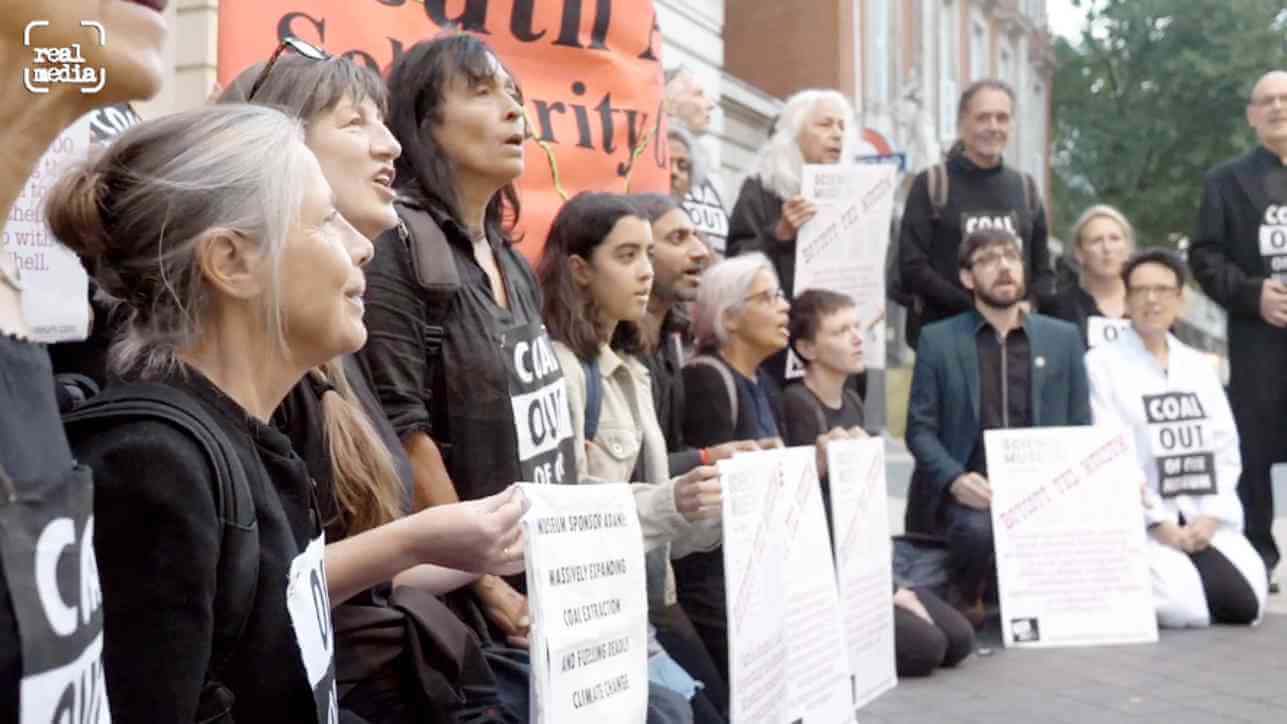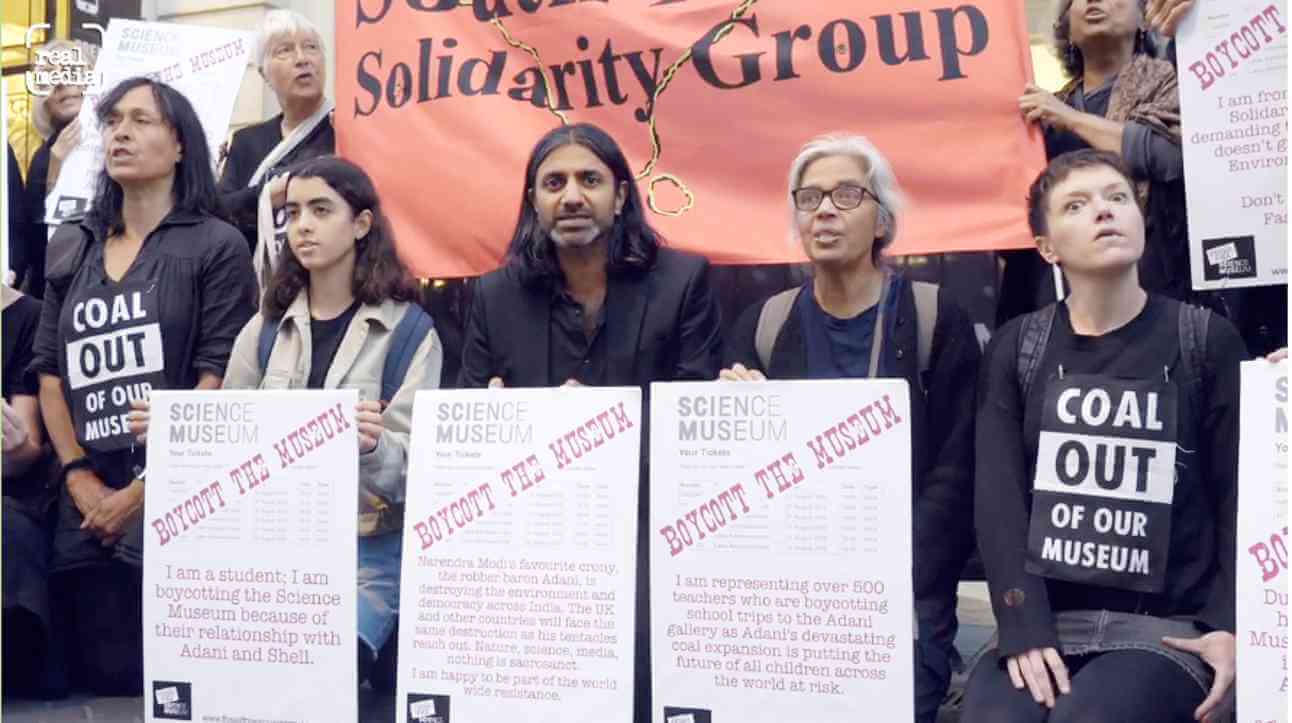South Asia Solidarity Group (SASG) and various civil society organisations in the United Kingdom protested against the London Science Museum for receiving funding from Indian corporate group, Adani. The protest, which was organised on September 1st, highlighted the destructive and exploitative role of Adani Group in India and Australia.
Jo Foster and Hannah Fry, members of the Science Museum’s Board of Trustees, had resigned in condemnation of the decision to accept sponsorship from a subsidiary of the Adani Group for a new gallery – a move that was branded by climate activists as ‘greenwashing’.
A statement from the Museum authorities noted that the gallery would “examine how the world can undergo the fastest energy transition in history to curb climate change.”
One of the protesters said that the Adani Group, owned by Gautam Adani, is involved in the extraction of coal and running thermal power plants, which has been engaging in practices that severely impact the climate, the local communities and their livelihoods.
In the Indian state of Chhattisgarh, the local population have been protesting against Adani’s coal mining in Hasdeo forests, a biodiversity-rich and densely-forested area. The tribal and forest-dwelling communities have been opposing the mining as it threatens to destroy 800 hectares of forest, besides land, livelihood, and culture in six villages.
In Australia’s Queensland, Adani’s Carmichael mega coalmine has been facing massive protests from local communities and people across the country. According to reports, “the mine will violate the land rights of the Wangan and Jagalingou people, drain tens of billions of litres of water every year, thus threatening the survival of the ancient Doongmabulla Springs, drive the extinction of endangered species such as the Black-Throated Finch, and lead to hundreds more coal ships travelling through the Great Barrier Reef every year.”
In Bunyu, a small island in Indonesia, Adani’s huge coal mine has been blamed for degrading water supplies, reducing fish stocks and plummeting agricultural production.
Adani, a close friend of the far-right Indian Prime Minister Narendra Modi, has been riding on overt and covert coercive measures, supported by the government machineries (both in India and outside) to silence the protests against its coal mines. In 2020, India witnessed one of the largest protest, in which 250 million people took part against the Modi’ government attempt to sell out the country’s farming sector to Adani and other corporate groups. Farmer-led protests erupted in response to the three laws passed by the Modi Government, where farmers expressed concerns of deregulation of agricultural markets that would invariably favour corporate interests of the billionaire Adani’s agricultural businesses, and make farmers vulnerable to exploitation.
Adani Group, using ‘greenwashing,’ is attempting to cover its exploitative and anti-people practices and rebrand itself as a leader on climate change and clean energy.

